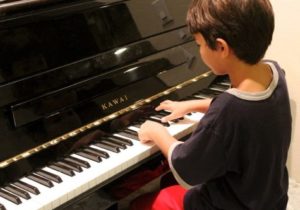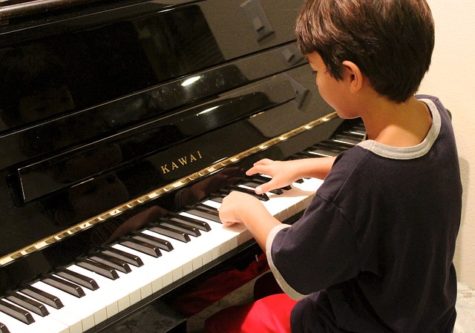AMSTERDAM — If you’ve been weighing whether or not it would be worth signing your child up for piano or drum lessons, the results of a new study should sound like, what else: music to your ears. That’s because children who take music lessons were found to experience a significant boost in their cognitive abilities that can be of great help with their schoolwork.
Researchers at VU University of Amsterdam wanted to determined whether music lessons accomplish more than teaching notes, rhythms and melodies. What they learned was that lessons actually make students brainier, and the benefits apply across all academic subjects.

The research is the first to take a longitudinal, large-scale look at the overall impact of music on such cognitive abilities as language-based reasoning, short-term memory, planning and inhibition. The study also found that visual arts lessons significantly boost both visual and spatial memory.
“Despite indications that music has beneficial effects on cognition, music is disappearing from general education curricula,” says study lead Dr. Artur Jaschke in a statement. “This inspired us to initiate a long-term study on the possible effects of music education on cognitive skills that may underlie academic achievement.”
Researchers used a structured musical method along with an arts education center at several participating schools. All of the schools followed a regular primary school curriculum but some of the 147 participating students were given additional music or visual arts classes. Students involved in the bonus music and art classes were given both theoretical and practical lessons.
The authors assessed academic performance and cognitive skills in participants after 2.5 years. They found that students receiving music lessons performed much better in cognitive assessments than all other study participants. Students in visual arts classes achieved greater visual and spatial short-term memory than students who did not get additional lessons.
“Children who received music lessons showed improved language-based reasoning and the ability to plan, organize and complete tasks, as well as improved academic achievement,” says Jaschke. “This suggests that the cognitive skills developed during music lessons can influence children’s cognitive abilities in completely unrelated subjects, leading to overall improved academic performance.”
With music and the arts often taking the biggest hits to stretch educational funding, researchers hope this study will increase awareness of the side benefits of music and art as more of a necessity than a luxury. The benefits extend beyond cultural to overall cognitive development.
“Both music and arts classes are supposed to be applied throughout all Dutch primary schools by the year 2020,” says Jaschke. “But considering our results, we hope that this study will support political developments to reintegrate music and arts education into schools around the world.”
The study was published Feb. 28, 2018 in the journal Frontiers in Neuroscience.
